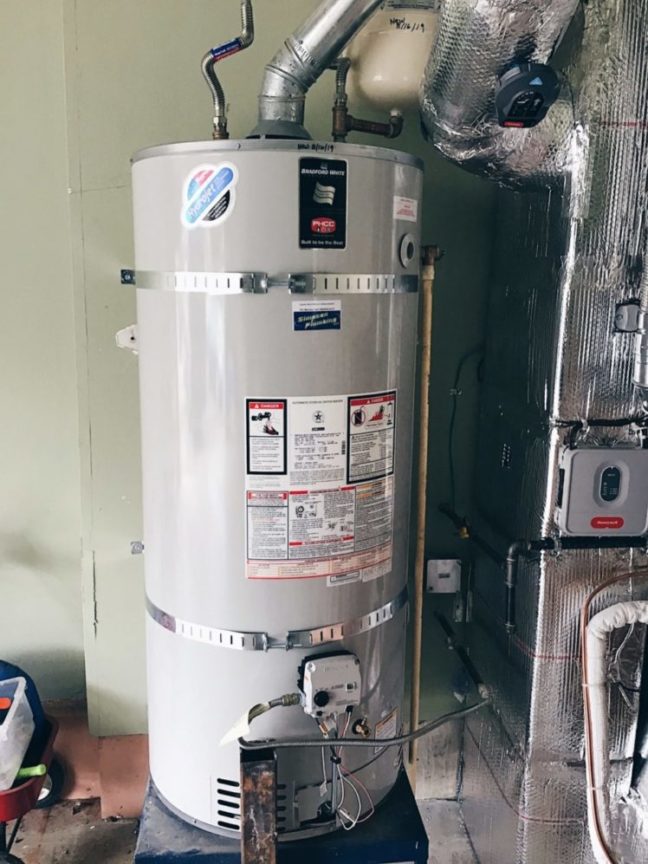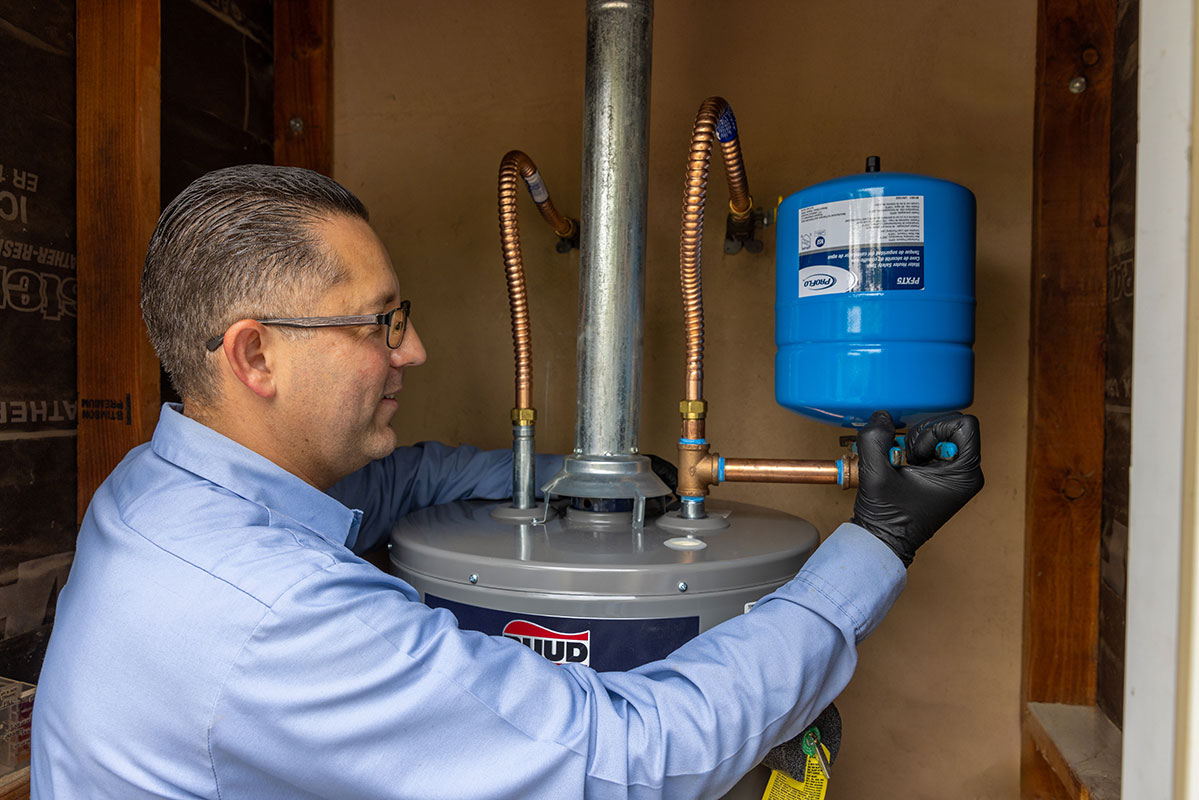Affordable Drain Cleaning Services to Remove Blockages and Foul Odors
Affordable Drain Cleaning Services to Remove Blockages and Foul Odors
Blog Article
Complete Overview to Water HeaterSetup and Replacement
Comprehending the intricacies of water heating system setup and substitute is important for home owners looking for to guarantee effectiveness and integrity in their warm water supply. From choosing the appropriate kind and size to implementing a smooth setup process, numerous elements have to be thought about to prevent typical mistakes. This guide will certainly supply you with the required actions and understandings to navigate the complexities of this home improvement job, while additionally highlighting crucial maintenance methods that can extend the life of your system. As you discover these facets, you might find yourself reassessing your present configuration and recognizing areas for enhancement.
Types of Water Heaters
When taking into consideration hot water heater installation and substitute, it is necessary to comprehend the various kinds of water heating units available out there. One of the most common types include storage tank water heating systems, tankless hot water heater, heatpump water heating systems, and solar hot water heater.
Tank water heating units are standard systems that save a details volume of hot water, making them conveniently available when required. In comparison, tankless water heating systems provide warm water on need, getting rid of the need for storage.
Heatpump hot water heater use electricity to transfer heat from the air or ground to warmth water, offering significant power cost savings however requiring more room and specific setup problems. Solar water heating units harness solar power to heat water, supplying a green option with possible lasting expense financial savings, although they commonly require a back-up system for gloomy days.
Recognizing these choices guarantees educated choices relating to installment and substitute, accommodating details requirements and choices.
Picking the Right Dimension
Selecting the proper dimension for a water heating system is vital to guarantee ideal performance and performance. A device that is too little will certainly battle to satisfy house needs, resulting in inconsistent warm water schedule and raised energy consumption. Alternatively, an extra-large hot water heater can cause unneeded power waste and higher utility bills.
To identify the appropriate dimension, take into consideration the family's top warm water use. This can be determined based on the variety of occupants and their common warm water needs. A family members of 4 might call for a water heater with a capacity of 50 to 80 gallons, depending on the usage patterns, such as simultaneous showers and laundry.
Furthermore, examine the recovery price, which measures how rapidly a heater can replenish hot water after it has been used. For tankless designs, focus on the flow rate, gauged in gallons per minute (GPM), to guarantee it meets the household's simultaneous demand.

Installment Process Introduction

Next, the old system has to be detached and gotten rid of, taking care to follow neighborhood codes and laws relating to disposal. As soon as the old unit is out, the new hot water heater can be placed in place. This step includes attaching the water lines, making certain that all fittings are leak-free and protected.
After developing water connections, it's necessary to attach the power supply, whether electric or gas, adhering to the producer's directions diligently. Once all connections are made, the system needs to be loaded with water, and click here now the power can be transformed back on. It's essential to check for leaks and guarantee the water heater is functioning appropriately before completing the installation process.
Typical Installation Errors

One more constant error is ignoring to adhere to regional codes and policies. Stopping working to stick to these criteria can not just result in security hazards but might additionally result in pricey fines or the requirement for costly reinstallation. In addition, incorrect venting is a crucial problem. Poor ventilation can cause harmful gas accumulation, posturing major health and wellness dangers.
Failing to safeguard links or utilizing the incorrect type of installations can lead to leakages and water damages. By avoiding these typical setup blunders, house owners can guarantee their water heater operates safely and effectively, making best use of performance and durability.
Maintenance Tips for Longevity
Appropriate maintenance of a water heater is crucial for its durability and ideal performance. Normal examinations and servicing can avoid expensive fixings and expand the appliance's lifespan. Begin by examining the temperature setting; it needs to typically be set between 120 ° F and 140 ° F for optimal power efficiency and safety and security.
Every 6 months, flush the container to remove debris buildup, which can harm heating performance and create deterioration. To do this, shut off the heating system, link a hose to the drainpipe valve, and let the water run until it is clear.
Anode poles need to be evaluated annually and replaced when they are corroded. These rods aid protect against container deterioration by bring in corrosive components in the water.
Additionally, examine the pressure safety valve regularly to ensure it is working click this site properly. This shutoff is vital for preventing too much stress accumulation within the storage tank.
Finally, think about setting up an expert upkeep check every couple of years for thorough examinations and maintenance. By sticking to these maintenance tips, homeowners can substantially enhance the effectiveness, safety, and life-span of their water heating units, ensuring reliable hot water for several years ahead.
Verdict
To conclude, correct installation and maintenance of hot water heater are crucial for making certain performance and durability (gas leak repair). Choosing the ideal kind and size, sticking to setup standards, and preventing usual mistakes dramatically add to optimal efficiency. Regular upkeep checks and expert servicing assistance endure performance and avoid expensive fixings. By understanding these crucial elements, property owners can achieve a trustworthy warm water supply while decreasing prospective problems connected to hot water heater procedure.
Understanding the intricacies of water heating system installation and substitute is essential for home owners seeking to guarantee efficiency and dependability in their hot water supply.Storage tank water heaters are typical systems that keep a specific volume of pop over here warm water, making them conveniently available when needed. In contrast, tankless water heating systems give hot water on demand, removing the demand for storage space. Selecting a water heating system that is either as well little or as well big can lead to ineffectiveness, resulting in insufficient warm water supply or extreme power consumption.
By understanding these vital facets, property owners can achieve a dependable warm water supply while minimizing prospective concerns related to water heater operation. plumber Denton.
Report this page